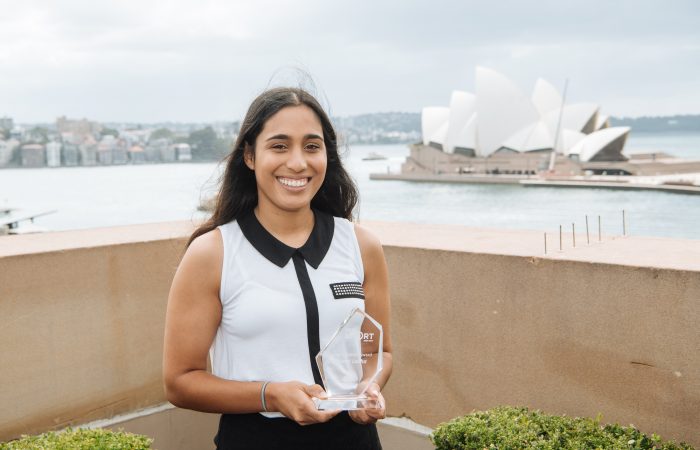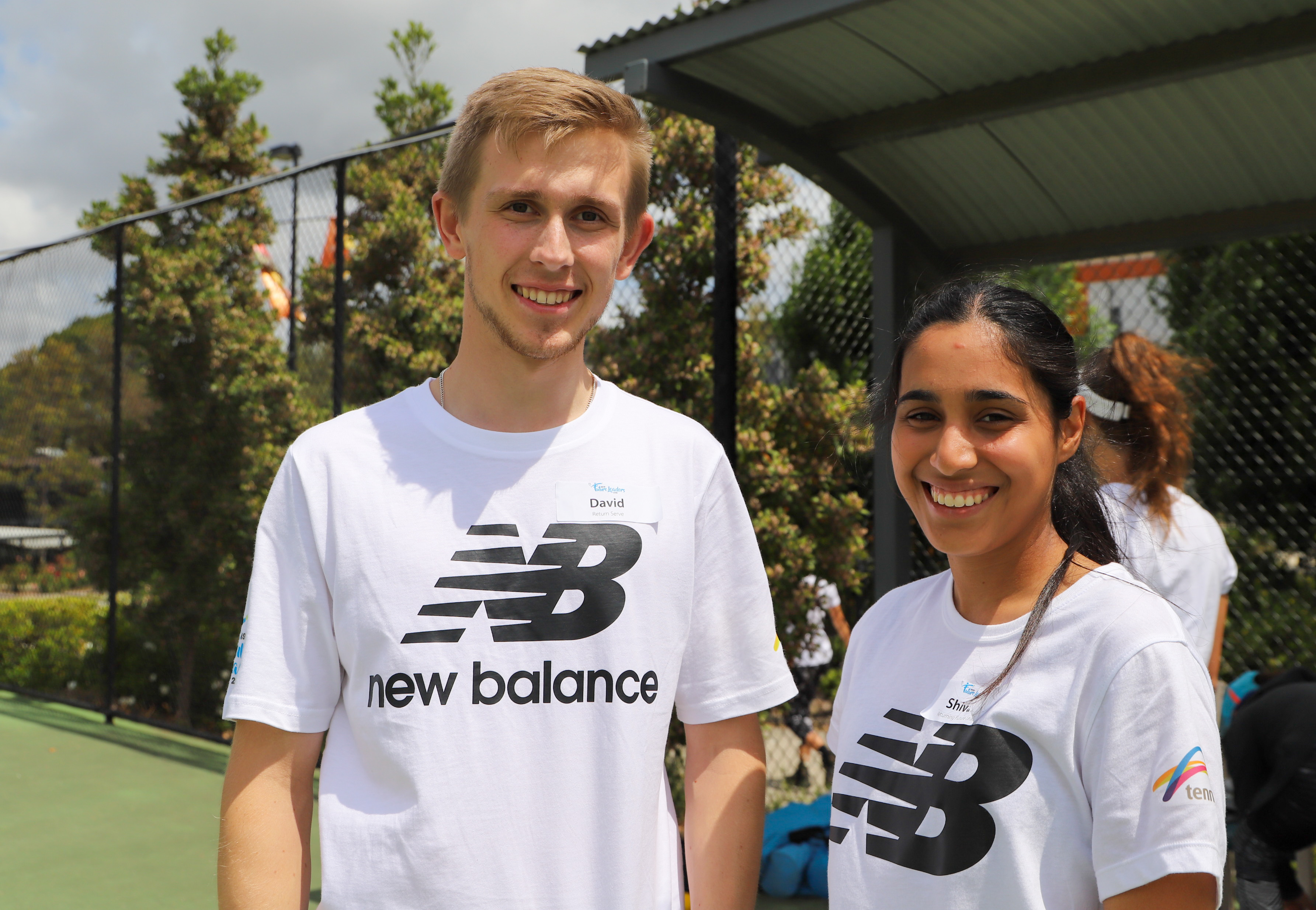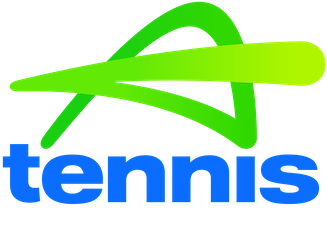
As we celebrate Youth Week, Shivani Lakha, a member of the Youth Advisory Group and recipient of the Young Achiever Award at the 2021 Her Sport Her Way awards, tells us about her journey in the sport.
Captivated by tennis from the moment she first picked up a racquet, Shivani Lakha has used the sport as a foundation for success in many areas of her life. Thriving with the discipline she developed in tennis, Shivani also created priceless community and social connections. Earlier this year, she was named Young Achiever at the Her Sport Her Way Awards. A former ballkid who is now a coach and member of Tennis NSW’s Youth Advisory Committee – all while studying to become a pilot – Shivani is now determined to ensure that other young people also experience the many benefits of tennis.
Shivani, tell us how you became involved in tennis?
I’m originally from the UK and when we moved to Australia (when I was nine years) we discovered that we live super close to tennis courts. My parents thought ‘we live like two minutes away, let’s just put my sister and I in’ and that’s kind of where it started. I enjoyed the sport and they tried me out for karate and soccer and everything else, but I think tennis just stuck. I started playing just once a week and then as I improved, I started playing twice a week three times a week then, you know, more like four to five times a week from there.
What was it about tennis that you loved so much?
I think I enjoyed hitting the tennis ball very hard. It was a very good release (laughs) and it also had a lot of discipline. I found that after coming from school and then coming into coaching, I was able to relax a lot more and focus a lot more as well.
And that discipline you learned in tennis obviously helped in other areas of your life as well?
Yes, 100 percent. Especially doing year 12 with the HSC. I found that being very stressed, then moving on to playing tennis and coaching, I was able to focus a lot more. A lot of people don’t realise the effect that the sport has on you mentally and it has served pretty well, especially with the uni course (Shivani is studying to become a pilot) that I do. It’s such a good release just coaching, playing, being able to put your mind somewhere else and then coming back to studying. It serves as a good sport to balance between the two.
What are the some of the other life skills that tennis helps to build?
I think physically the fitness side – it is so good, both for fitness and hand-eye co-ordination. In terms of the more social side, the connections I’ve been able to make are incredible.
When you when you started tennis, were there any barriers you had to overcome?
Yeah, definitely. I think because I was quite late to the sport at 10 years old – a lot of people who do start playing, kind of start at) three, four (or) five years old. I found that trying to find tournaments and competitions, I was quite far behind the other kids and when I would play it was like ‘I’m not good enough. I’m not up to their level. I shouldn’t play in these tournaments.’ So that was a big mental barrier to get over, but then I surrounded myself with my other mates and coaches who would bring me up and just say ‘no you can do this’.
So it was coaches and friends who helped you push through?
Yeah. Definitely. I was quite lucky here at Pennant Hills. There is such a great community here with all the kids who play tennis. There was Saturday morning comp, everyone will come together. The parents would, instead of watching us, they would talk and then the kids would just have fun on the court and when it came to the more competitive side, so tournaments and competitions, you’d have their full support, which was awesome.
Through tennis, you’ve become involved with the Future Leaders Program. Tell us more about that?
In 2016, the manager of my club at the time Eilish actually spoke to me and said, ‘Tennis New South Wales has this new Future Leaders course, would you like to do it?’ and I was like, ‘yeah definitely’ and two of my other friends did it with me, which was great. I’m pretty sure it was the first one, so it was quite new for everyone and we went to Sydney Olympic Park, participated in the two-day workshop, and it was incredible.
What were key things that you gained from the program?
Leadership and team-building exercises. We also had a rugby player come in (and speak to us and he told us, ‘there’s more the sport that meets the eye, especially when it comes to tennis’. There’s not just playing and the competitive side, there’s everything that goes on behind the scenes, so I learnt a lot more about the sport and a lot more about what we can do to progress tennis.
Now you’re part of the Youth Advisory Group. What does this entail?
Following the Future Leaders, I was lucky enough to be a part of the first Youth Advisory Group and then for the past two years the ones after that, including this year. It’s basically just thinking of ways to really get youth involved – whether it’s in the competition side or the voluntary side.
I think that’s where I found my passion for the sport, because I’ve been quite lucky enough to also work in the ballkid program – being a ballkid myself, then going on to train the kids, I meet a lot of the youth within tennis. It’s really interesting seeing their perspective of the sport and then being able to bring that to the Youth Advisory Group, to share ways I think that we can incorporate youth into tennis. That’s definitely where I found my passion, working with the youth.
You have also been involved with Sheroes? What has that meant to you?
I joined Sheroes last year. It’s basically trying to support females in tennis and thinking of initiatives to really grow us in sport. The ultimate goal is to create kind of a youth Sheroes, (attracting) younger females into this group. I’ve been very lucky to meet a lot of incredible women in tennis including Casey Dellacqua and Nikita Sayle as well. She’s done a lot for me and all the other females across the state who are involved in tennis.
Who are the women in tennis, and in broader areas of your life, who have inspired you?
Within tennis, the biggest one has been Nikita. She’s basically been my mentor over the years, providing me with all these opportunities. She works so hard to create all these initiatives and she’s provided me the platform to help with this. Seeing how hard she works to make these things happen and how much time she puts into things is very inspiring. I hope to continue working with her to further grow tennis.
Outside of tennis, my degree is aviation. I’m working towards being a pilot and there’s a few female pilots who I’ve met, who their stories have just been incredible – like what they’ve had to endure in the industry to get to where they are. That’s been quite inspiring as well.
You recently received the Young Achiever Award at the Her Sport Her Way awards – how much did that mean to you?
It’s such a humbling feeling, knowing that there’s so many incredible women in sport and that I’ve been recognised as one. There are so many other women who work ten times harder than I do, but to be recognised for the work that I’ve done so far, it means a lot. I’m continuing to try and inspire other young people and young females to follow in both my footsteps and all these other amazing woman’s footsteps.
I was very honoured to receive the award. And I know that I after I received it, I got a lot of messages from other women in the tennis community saying how amazing it is and I said to them, ‘You know, it’s not that hard to get involved.’ At least I’m kind of spreading awareness of the opportunities that there are.
You’re also a coach. What do you most love about that role?
I love seeing kids progress. I think that’s the most rewarding part of coaching. I love coming to work seeing all the kids and seeing them enjoy the sport and finding their love for it and I’ve been quite lucky. Some of the kids I’ve been coaching for two to three years and I’ve seen them progress from Red Ball to Green Ball. As a coach, that’s what you strive for. That’s what you come to work to do, to see them progress.
Can you recall a piece of advice you received from a coach that really stood out when you were young?
It isn’t so much what my coaches said, it’s something that one of my friend’s parents said to me during a tournament. He said, ‘you’re always smiling and keep doing that’. Because I’m a big smiler and when I’m enjoying something, I smile. And I think that every time I step onto the court, I’ll just be happy … I think that’s stuck with me ever since.
What’s one piece of advice that you always give to young players?
To have fun. The best players that I see when I coach, or when I watch, is are the ones that I see having fun on the court. Tennis is a mental game and a physical game – once it starts getting into your head a lot, that’s when you start to stress and not enjoy the sport and put a lot of pressure on yourself. The players who kind of relax and find that balance between the two, those are the ones who generally play the best and have the most fun and love the sport. I always tell all my students, ‘Yes, work hard. Yes, listen. Yes, you know, try your best but at the end of the day you need to have fun.’
To find out more about Tennis NSW Youth programs head to – https://www.tennis.com.au/nsw/our-work/get-involved-off-court


